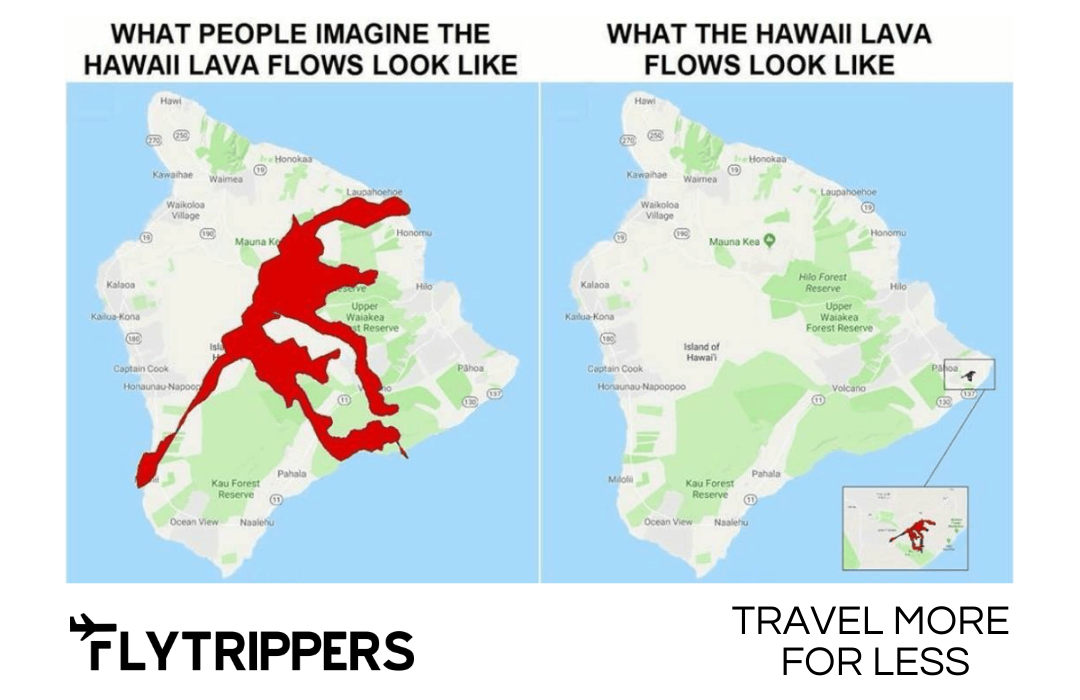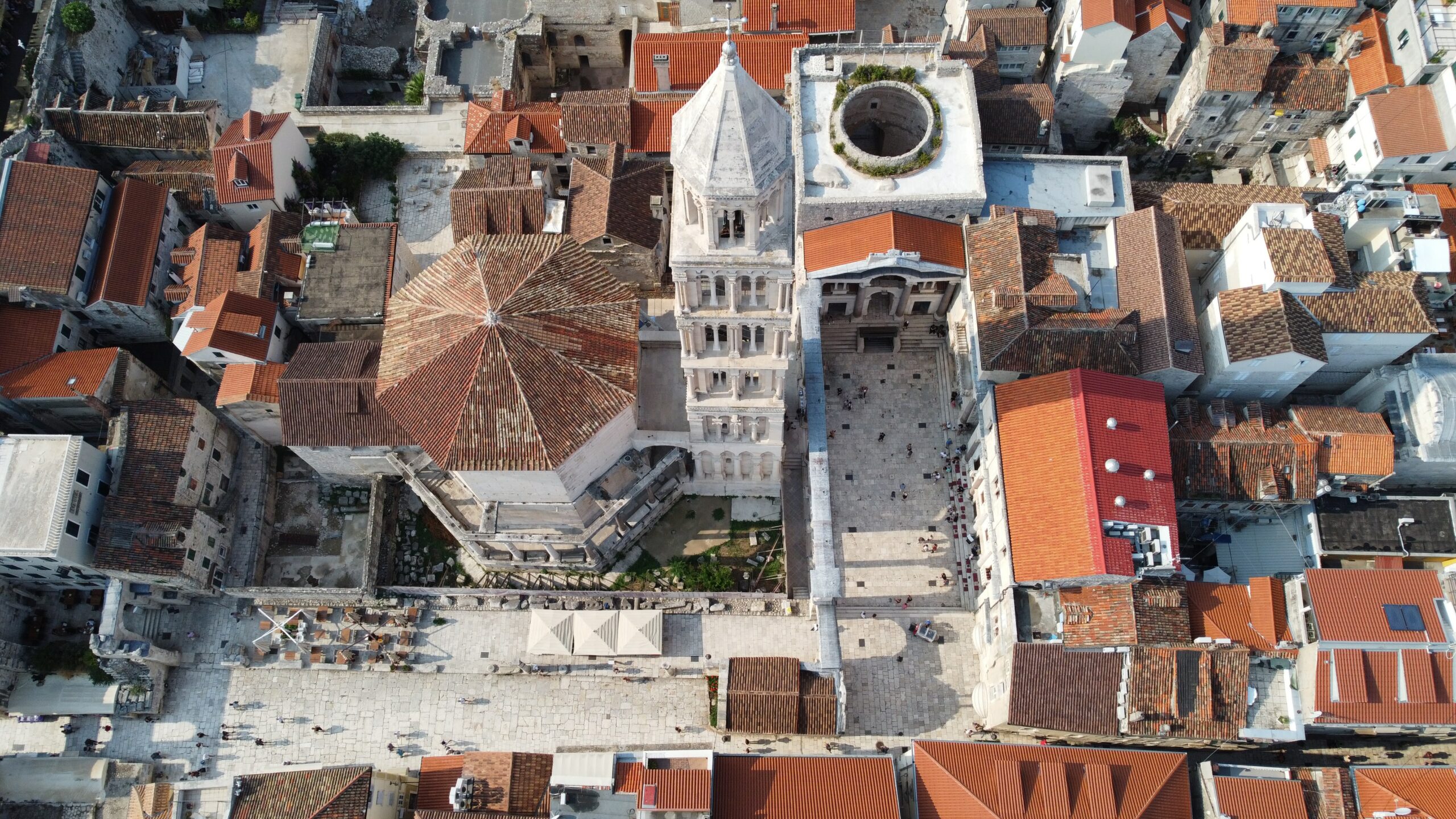We’ve seen it since launching Flytrippers: a loooooot of people are afraid of a loooooot of things. Especially things that are foreign and unknown (and new). It’s normal for everyone to have their own risk tolerance (or total lack thereof) — and that’s okay. But we received several messages about Russia’s invasion of Ukraine, and some are just a little too extreme, so we have to talk about it.
So here’s our opinion as travel experts, although it’s actually basic geopolitical knowledge that’s involved in this case, not so much travel knowledge.
Part 2, is a more detailed description of the Russia risk, country by country.
Because there are certainly places where you shouldn’t go right now because of this invasion, but there definitely aren’t as many as you might think.
(Basically, it’s precisely the same concept as for other risks unrelated to this invasion, which often appear exaggerated by the media, among others!)
But since we always want to educate travelers and help them be more informed, I can’t help but share a few important thoughts and notes about travel-related risks in general to start.
Looking at the big picture first will allow you to come to a logical conclusion for yourself by knowing the facts and understanding these vital elements.
Europe’s ≈ 600 million inhabitants (excluding Russia)
First of all, of course you can go to Europe at this point in the invasion of Ukraine; I’m at least going to say that prior to part 2!
I hope that everyone at least realizes how massive this continent is and that some people’s hesitation only pertains to some specific countries (I guess so).
I’ll be optimistic and hope that no one thinks all of Europe is heading for nuclear obliteration without warning! 😬
There are ≈ 560 out of 600 million people living very normally there right now (even more so than us, since most countries have lifted mask requirements on planes and everywhere else, as I was able to experience in France 2 weeks ago — but that’s a whole other topic).
Obviously, the invasion is atrocious for the ≈ 40 million people in Ukraine; I’m certainly not minimizing that. But factually, it doesn’t affect daily life in every other country! I’ll come back to this at the end.
In short, it’s not like a rapidly transmissible virus, it’s a war! And it’s only in Ukraine… for now.
So before we talk about the risks of it potentially spreading (I guess that’s what scares those who are scared), I want to get you thinking about how you could alleviate your fear of risks in general.
To be honest, the fear of everything so many people feel is one of the things that fascinate us the most since launching Flytrippers, as we receive thousands of comments and questions from travelers.
We’re seasoned globetrotters. At least more than most people, anyway.
A lot of people are scared, and that’s okay, of course.
But inevitably, that fear can only come from the fact that some people haven’t yet been able to see the world and get out of the most touristy and known countries.
Because when you get to discover countries, you obviously realize how friendly people are almost everywhere and that the idea that everything is dangerous is false.
It’s really the only possible realization when you do that and stop relying on hearsay.
This is exactly why you should travel more! It’ll help with your fears (on top of just being awesome of course).
So get on the revenge travel train and don’t just go to the expensive places in North America and Western Europe, like everyone always does!
There’s nothing more rewarding than going out and seeing for yourself to realize you can go almost anywhere in life and you’ll survive (not just survive; you’ll love it). We also definitely encourage you stop watching the news so much: it can only be beneficial for any human being, of course; the science is clear.
Specific risks of the current situation
So, back to the invasion of Ukraine specifically.
We received messages from people who were seriously worried about their trip to Croatia, for example.
To be clear, Croatia:
- Is a member of NATO just like Canada
- Has never been a Soviet republic
- Doesn’t share a border with Russia or Ukraine
- Has no connection at all to the conflict
We know everyone has their concerns, but it’s not really rational to think that when you look at the facts I just listed. But I understand that not everyone knows all these facts.
That’s why I prefer explaining things rather than just telling you: “Here are the countries to avoid.” Otherwise, you’re not really learning anything.
The first aspect is the most important one to understand the potential risk per country in this specific situation: Croatia is a member of NATO, like 28 countries in Europe… and like Canada!
So: an attack on Croatia = an attack on Canada!
Basically, the way NATO works is that if you attack one member, you attack all members… This is a key element of the underlying causes of the Russian invasion, by the way!
So the NATO countries should be pretty safe.
But even without considering this aspect, if Putin was to attack a NATO member, there are the other 3 points! Croatia is just not related at all to the conflict (like almost every country in Europe, by the way).
Putin may want to rebuild the USSR, but he’s not going to suddenlywant to capture former Yugoslavia when it’s never been done in history! He hasn’t even been able to defeat Ukrainian farmers and villagers in 3 months, so it would be quite surprising if he came up with a new random target that’s not even remotely related to the conflict!
Look, you can definitely go to Croatia with peace of mind, here’s an easy answer (one country done before you read part 2)!
A very, very easy answer (I’m actually thinking of going there with my girlfriend this summer)…
I think that’s the part that fascinates us the most: how people think that an event in one specific place magically makes everything around it more dangerous. But as always, we want to help you understand the situation better so you can conquer your fears if you have any and travel more.
Most vital thing to understand about risks
So if you remember just one vital thing, it’s that the vast majority of “bad” events occurring in the world (including an invasion, obviously) are extremely limited geographically!
It happens where it happens, not hundreds of miles away!
Think of something happening halfway across the USA from where you live, or further away. Would that stop you from going out in your Canadian city? That would be a little weird…
This meme we made when everyone was going nuts about a “scary record-breaking volcanic eruption” in Hawaii illustrates it visually quite well.

A bit ridiculous!
Well… it’s almost always like that!
For example, take Lublin, Poland. It’s about 600 kilometers from Kyiv, one of the westernmost areas affected. To give you an idea, that’s almost the same as the distance between Montréal and New York City. So there’s literally no problem in going to Lublin, Poland (or Warsaw or Krakow, which are even further away): it’s another country!
And it’s a NATO member too.
Anyway, you can go to Poland. There are what we call borders. Flytrippers’ other co-founder, Kevin, might just be going there for a few weeks in June.
It’s nearby, but it doesn’t matter: it’s not where things are happening! Avoid what is directly on the border, and you’ll be fine!
There are repercussions in Poland, of course: many refugees are there, and there are more impacts than in Croatia — but not security impacts.
Putin shouldn’t attack cities in Poland! There are USA military bases and all! If he planned that, it would escalate and we would see signs. Like for the invasion of Ukraine, which was a poorly kept secret: everybody saw the troop movements and signs for months. It didn’t come out of nowhere!
In short, wars do not spill over to other countries easily. Surprise airstrikes maybe, but even that is pushing it. And in any case, in a new country they would only target military facilities or something like that, never random civilians, come on! You’d have plenty of time to get out, don’t worry.
And even within the same country… just because you hear bad things doesn’t mean 100% of the country is automatically in absolute chaos and should be avoided entirely.
I went to Iraq for a weekend just before the pandemic, and Iraqi Kurdistan is excessively safe. It’s not riskier in that part of the country than in many other countries; just because the rest of the country is at war doesn’t mean that all other parts become dangerous!
Even Trudeau just went to Ukraine. Why?
Because war doesn’t magically happen on 100% of the territory, that’s not how it works: it’s concise and geographically limited. And, of course, he has more protection than you and me (enough imaginary protection not to wear his mask there even though he wears one here since all of that is pretty much “hygiene theater” at this point anyway).
But let’s not talk about COVID-19 risks; seeing the record numbers of air passengers this week, most people have figured out that it’s no more risky to cross imaginary lines than it is doing the same things you would do while traveling, but here in Canada instead (better late than never, I guess).
As for war-related risks and others, here are some final thoughts to help you consider them rationally, because reacting impulsively and emotionally without looking at the facts is not very practical for travelers.
Final thoughts
First of all, anyone who has been following this closely has undoubtedly noticed that many people have a tough time contextualizing the risks and assessing their severity. Yes, I’m talking about the pandemic.
But actually — and it was like that even before — plenty of people are just naturally more afraid of everything. Maybe you’re one of them. It’s your life, your choice, and that’s okay.
Obviously, as I said, there is a personal element to it as well. Some people prefer to miss out on certain things to try to reduce risks as much as possible.
Personally, I will never live my life being afraid of risks when they are, in fact, statistically minimal and, most importantly, are a lot less elevated than for activities we do every day, like driving.
I’m too rational.
Some people prefer missing out regardless of the facts, and it’s perfectly fine to prefer that, of course.
But in fact, the risks of something happening to you while traveling are so statistically insignificant in almost all places on the planet that it’s not worth missing out on discovering those places.
So to help you more concretely, you can check out the list of the risk levels country by country. If you still have doubts, we’ll do our best to dispel them and reassure you!
Want to receive all of our tips to travel more?
Summary
There’s very little logic behind considering canceling your trip to Europe because of the invasion of Ukraine. Europe is huge, there are literally hundreds of millions of people living there very safely, and it’s mostly made up of NATO countries that are not affected by the situation at all security-wise.
What would you like to know about the impact of the war in Ukraine? Tell us in the comments below.
See the deals we spot: Cheap flights
Explore awesome destinations: Travel inspiration
Learn pro tricks: Travel tips
Discover free travel: Travel rewards
Featured image: Općina Split, Croatia (photo credit: Rodrigo Castro)




